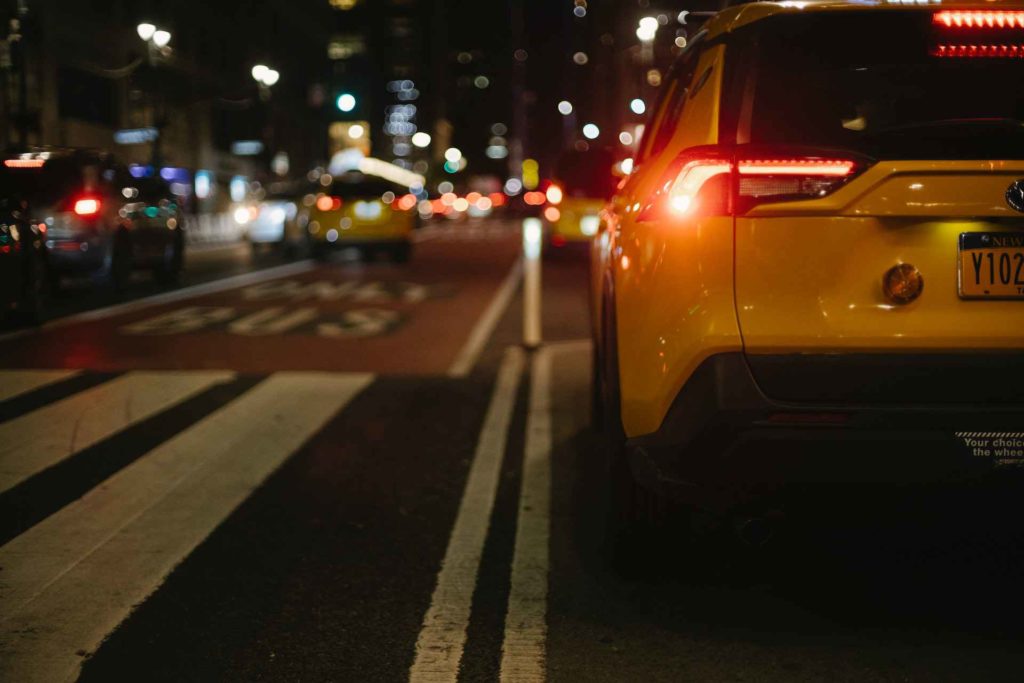Florida is the third most populous US state, which is why there is typically heavy traffic on its roadways, particularly during peak season. This, along with roadwork sites and various driving behaviors, put Florida drivers at risk when in transit.
As of January 14, 2023, the Department of Highway Safety and Motor Vehicles recorded 7,275 crashes. These collisions result in property damage, bodily injuries, or even wrongful death.
In at-fault states, whoever caused the crash should be responsible for paying damages related to the incident. But from whom can you get compensation after a car accident in a no-fault state like Florida?
Find out more about the no-fault law and how it can affect your rights to compensation following a car accident.
Key Takeaways
|
Understanding How Florida No-Fault Law Works
Florida is among the twelve states and the second state to adopt a no-fault auto
How does Florida’s no-fault
Section 320.02 of Florida Statutes requires owners to carry a minimum level of
Personal injury protection (PIP) coverage
Each vehicle registered in the state of Florida must have a minimum of $10,000 in personal injury protection (PIP)
Regardless of fault, PIP
However, unlike other states, Florida PIP
Suppose you cannot work because of accident-related injuries. In that case, PIP will pay for 60% of your lost wages, subject to the coverage limit. It also covers the cost of substitution services for household chores, such as cleaning the house, laundry, and taking care of pets.
PIP coverage also pays up to $5,000 to the family members if the policyholder dies in a car crash. This will cover their funeral and burial costs.
The benefits of PIP generally extend to anyone in your household unless they have an
Florida has strict rules for filing a PIP
Property damage liability (PDL) coverage
The state of Florida also requires a minimum of $10,000 of property damage liability (PDL) coverage on all registered motor vehicles. This type of
Suppose you lose control of your vehicle and rear-end another motorist. In that case, PDL
PDL doesn’t cover damage to your car or personal property. However, depending on your
If you want financial protection for damage to your vehicle, consider purchasing collision coverage. It will cover the cost of repairing your car in the event of a crash.
In Florida, drivers have no requirement to have bodily injury liability coverage. But many choose to do so to protect their assets if they cause an accident. This coverage helps pay for serious injury or death to other parties when you’re at fault. If the injured victims sue you and you have no coverage, you’ll likely have to pay for damages out-of-pocket.
You can purchase more than the minimum coverage required by the state. The expenses associated with severe injuries can easily exceed $10,000, particularly if more than one individual sustains injuries while in your vehicle.
The Florida Senate was pushing to repeal the state’s no-fault auto insurance rules. However, the governor vetoed the bill after insurers said it would raise premiums. However, significant changes could still be coming to Florida’s no-fault system. A personal injury lawyer can update you on these changes when and if they happen.
When can you seek car accident compensation from another party?
A driver’s own
Once you reach your PIP coverage limits, you may be able to sue for medical care costs and other economic losses. However, you cannot sue for pain and suffering or other noneconomic damages unless you meet the injury threshold.
You may have legal standing to file a personal injury lawsuit if you sustain one of the conditions of a serious bodily injury. According to Section 316.027 of Florida Statutes, it involves a physical condition that creates a significant risk of the following:
- Considerable loss of ability to perform critical bodily functions or organs
- Permanent injury, which is, according to a doctor’s opinion
- Significant scarring or disfigurement as determined by the court
- Death
Unlike minor injuries, serious bodily injury often requires prolonged and extensive treatment. In more severe cases, the injury may not be treatable and never fully heal. As a result, medical bills after the car crash may be recurring for the rest of an accident victim’s life.
A car accident attorney can help determine whether your injury qualifies you to step outside the no-fault system. But here are a few common examples of severe bodily injury:
- Loss of limb, either actual or functional
- Paralysis
- Traumatic brain injuries (TBI)
- Severely broken bones
- Severe burns and cuts
- Loss of vision or hearing
- Head and neck injuries
- Spinal injuries
How does Florida address fault in a personal injury claim?


Accident victims can recover compensation outside of Florida’s no-fault system in specific circumstances. These include when the crash causes severe injuries and lifelong difficulty.
If that’s the case, it may be necessary to determine fault. But to get compensation against another driver, you must prove their negligence caused the accident and your injuries.
The at-fault driver may blame you for causing the collision that resulted in your injuries or for making them worse. Being partly at fault for the accident can significantly impact the compensation you may recover.
Florida is among the few states that follow the pure comparative negligence rule. Under this rule, an injured victim can pursue a claim even if they were 99% responsible for the crash.
However, the court will reduce the amount you can recover by the percentage of your fault. Let’s say you are 10% at fault for the crash, and the damages awarded total $20,000. Under the comparative negligence rule, your compensation will go down to $18 000.
Fault can be challenging to prove. But with the aid of a personal injury lawyer, you can collect evidence that will help establish the other driver’s fault in your car accident. Taken another way, a skilled lawyer can reduce your responsibility considerably.
Below are forms of proof that
- Police reports
- Witness statements
- Photos or videos of the crash scene
- Expert witness reports
- Traffic citations or tickets
Steps You Can Take After an Auto Accident in Florida
It’s easy to feel overwhelmed after being in an auto accident. Fear, confusion, and distress can make it hard to make rational decisions. It’s not surprising that many victims lost their rights to compensation because of something they failed to do immediately after the crash.
The things you do after the collision can help protect you physically, financially, and legally. Although remaining composed may seem difficult, the following steps can help you stay calm.
Check for injuries
Florida drivers in a car accident should stop the vehicle at the crash scene or as close to it as possible. You must pull over to a safe area even if you think the collision is only minor.
Check to see if you or your passengers sustained any apparent injuries. If you think you’re safe, ask the other motorist and passengers if they have any injuries. However, if the accident resulted in physical harm to you or someone else, immediately call 911 for medical assistance.
Report the accident to the police
Under Florida Statutes Section 316.065, motorists who are involved in a crash must report it to the police in the following circumstances:
- It caused property damage of at least $500
- Anyone is injured or killed because of the accident
You do not need to report collisions that don’t meet either of these requirements to law enforcement. But even in a minor car accident, it’s still a good idea to call the Florida Highway Patrol. Some injuries can take days or weeks to manifest. By reporting the accident, there’s a crash report to support your claim if you seek compensation later.
Exchange information with other drivers
Getting the information of other drivers is crucial after a car accident, primarily if it results in injury, property damage, or death. In Florida, you should remain at the crash scene until you have fulfilled your duty to give information and render aid.
The details you need to know may seem obvious, but some motorists make small mistakes that can adversely affect their claim. Here is information to exchange after getting involved in a Florida car accident.
- Name, address, and contact details
- Registration number of the vehicle
- License or permit to drive
- Insurance information
Collect evidence and witness accounts
It’s easy to forget the details about the crash, so take photos of the surrounding scene if you can. Write down how the accident occurred to recall them later.
There may be people who witnessed the crash. Speak to these witnesses while the details of what happened are still fresh in their memory. Remember to get their contact information and ask for their statements.
The more evidence you can gather at the accident scene and afterward, the better your chances of recovering full compensation.
Notify your insurance company
Following an auto accident, you will need to notify your
Note that
Hire a car accident lawyer
Filing a claim for a car accident compensation in Florida can be straightforward because of its no-fault system. Still, you can face legal challenges and unfair settlements. Additionally, Florida has a strict time limit to file a claim. Failing to meet the deadline can make you ineligible for any compensation.
A car accident lawyer can help protect your rights and ability to pursue a successful personal injury case. While you focus on your healing, they can strategize how to use your


Pro Tip
Florida has a 14-day Personal Injury Protection (PIP) rule, requiring victims to seek medical care within 14 days of the accident. Thus, don’t delay seeing a doctor and notifying your insurance company.
Involved in a Florida Car Accident? Visit The Personal Injury Center Today!
The aftermath of a Florida auto accident can be overwhelming, no matter how prepared you are. But having an experienced personal injury lawyer in your corner can lessen the burden.
Personal injury lawyers will help you understand your options and possible outcomes. Even if Florida doesn’t require hiring an attorney after a crash, getting one could benefit you significantly.
However, searching for a reliable lawyer can be challenging. You can look to the valuable resources and network of lawyers available at The Personal Injury Center to make it easier. Get a free consultation to connect with the most qualified attorneys in your area.
Protect your rights in a car accident in Florida. Visit The Personal Injury Center to find experienced personal injury lawyers in your area.
FAQs on Is Florida a No-Fault State
What is Florida’s statute of limitations for personal injury cases?
Florida has a four-year statute of limitations for personal injury cases based on negligence. The clock starts on the day of the crash.
What optional auto insurance coverage can you carry?
Although Florida only requires personal injury protection and property damage liability insurance, you can carry others. Adding the following optional auto insurance coverage may enhance your security:
- Uninsured/underinsured motorist insurance
- Comprehensive insurance
- Medical payment insurance
- Bodily injury liability insurance
- Collision insurance
What happens if you get involved in a Florida car accident without insurance?
Getting in a Florida car accident without insurance has consequences. The FLHSMV (Florida Department of Highway Safety and Motor Vehicles) may impose sanctions. These include suspending your license, vehicle registration, tags, and license plate unless you meet specific requirements. If the other driver pursues legal action against you, you will have to pay the damages out-of-pocket.



